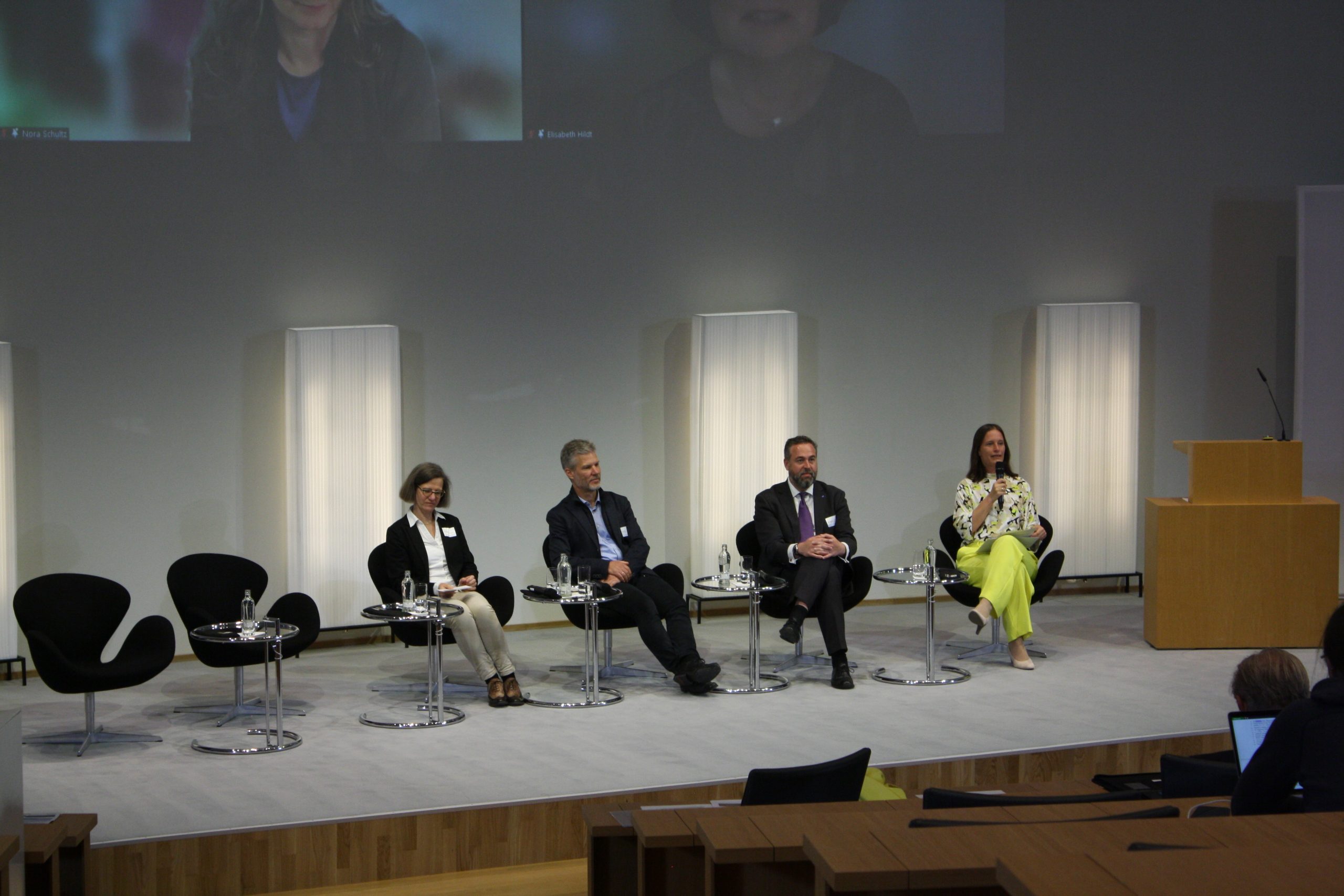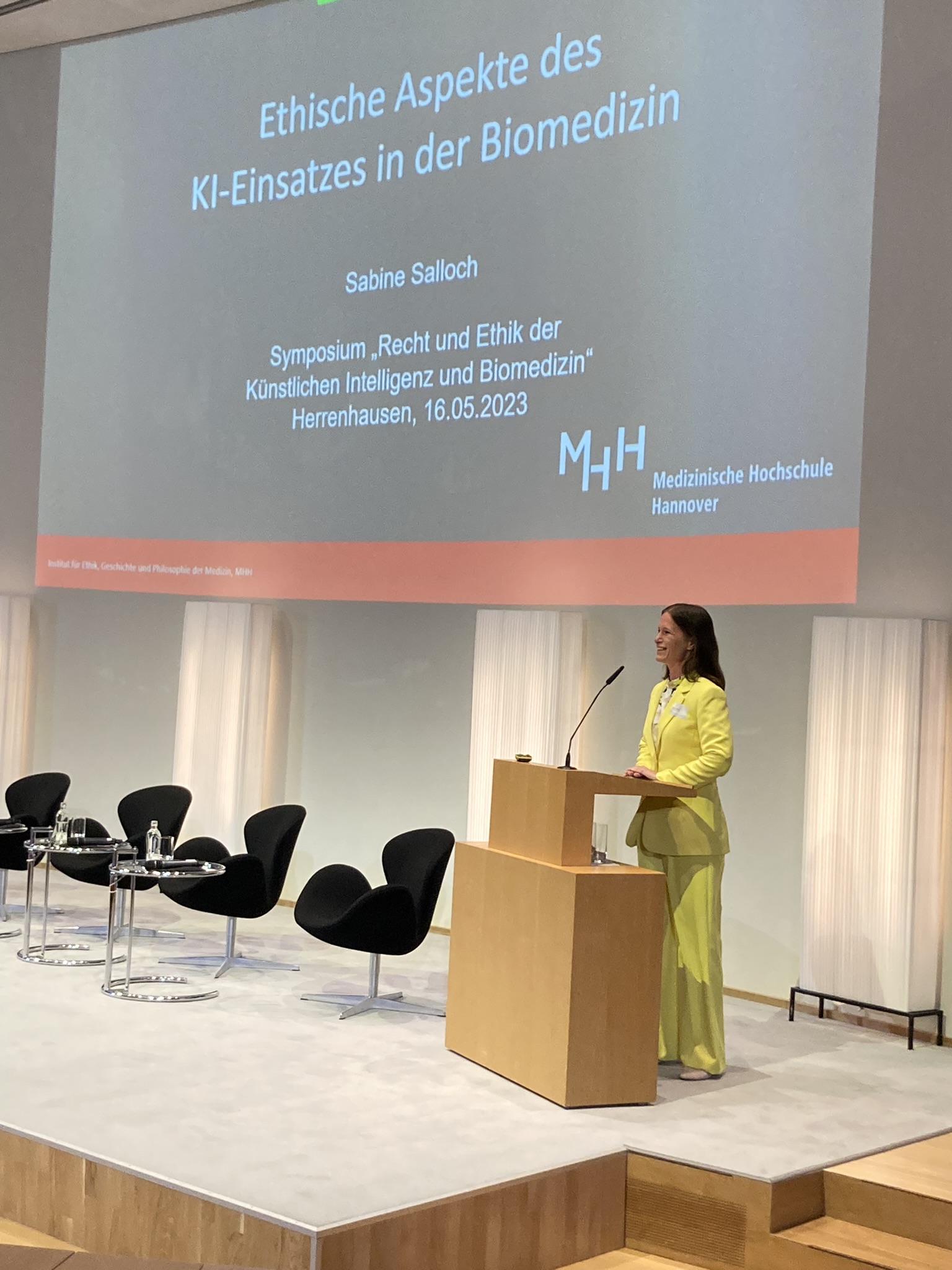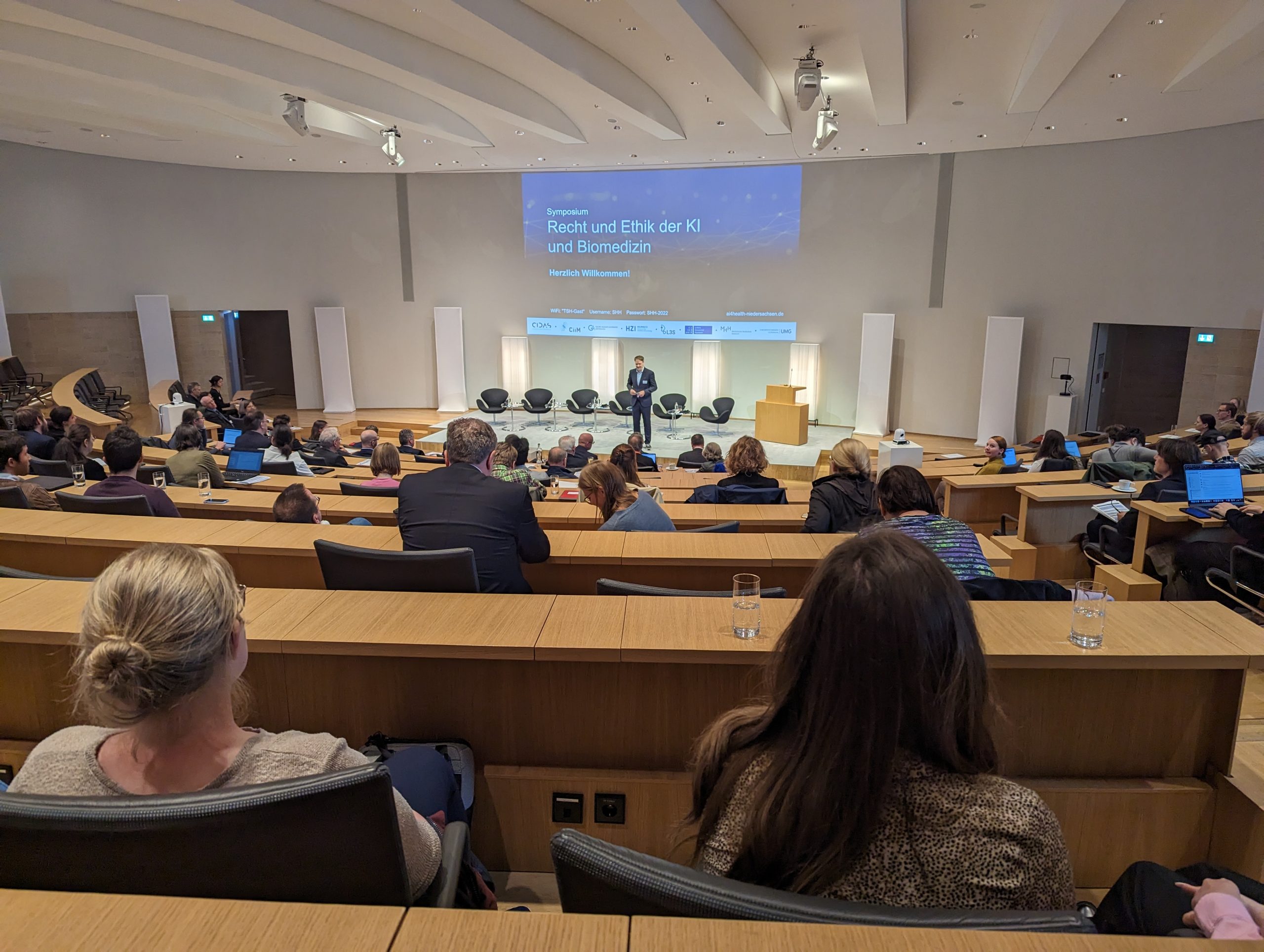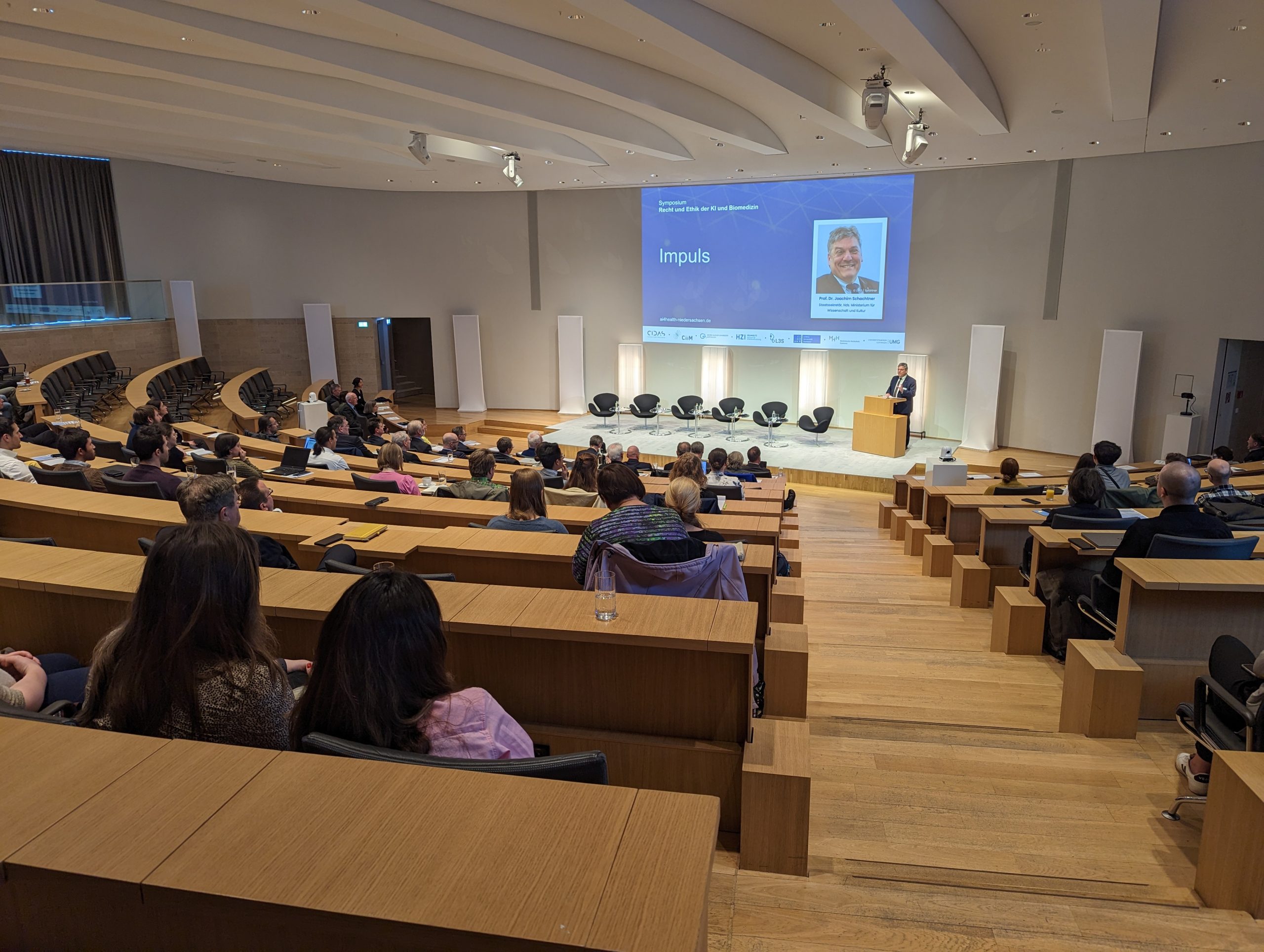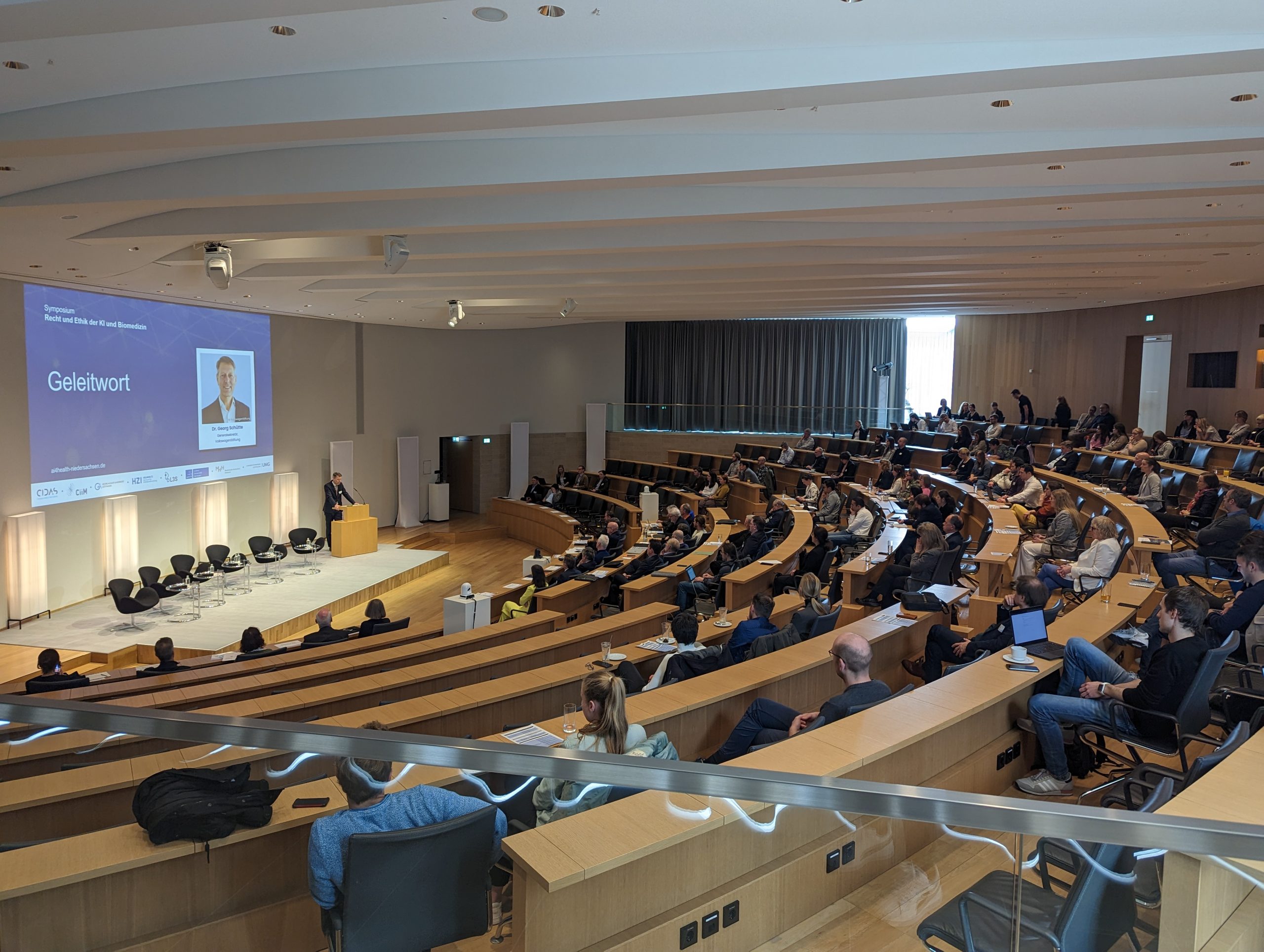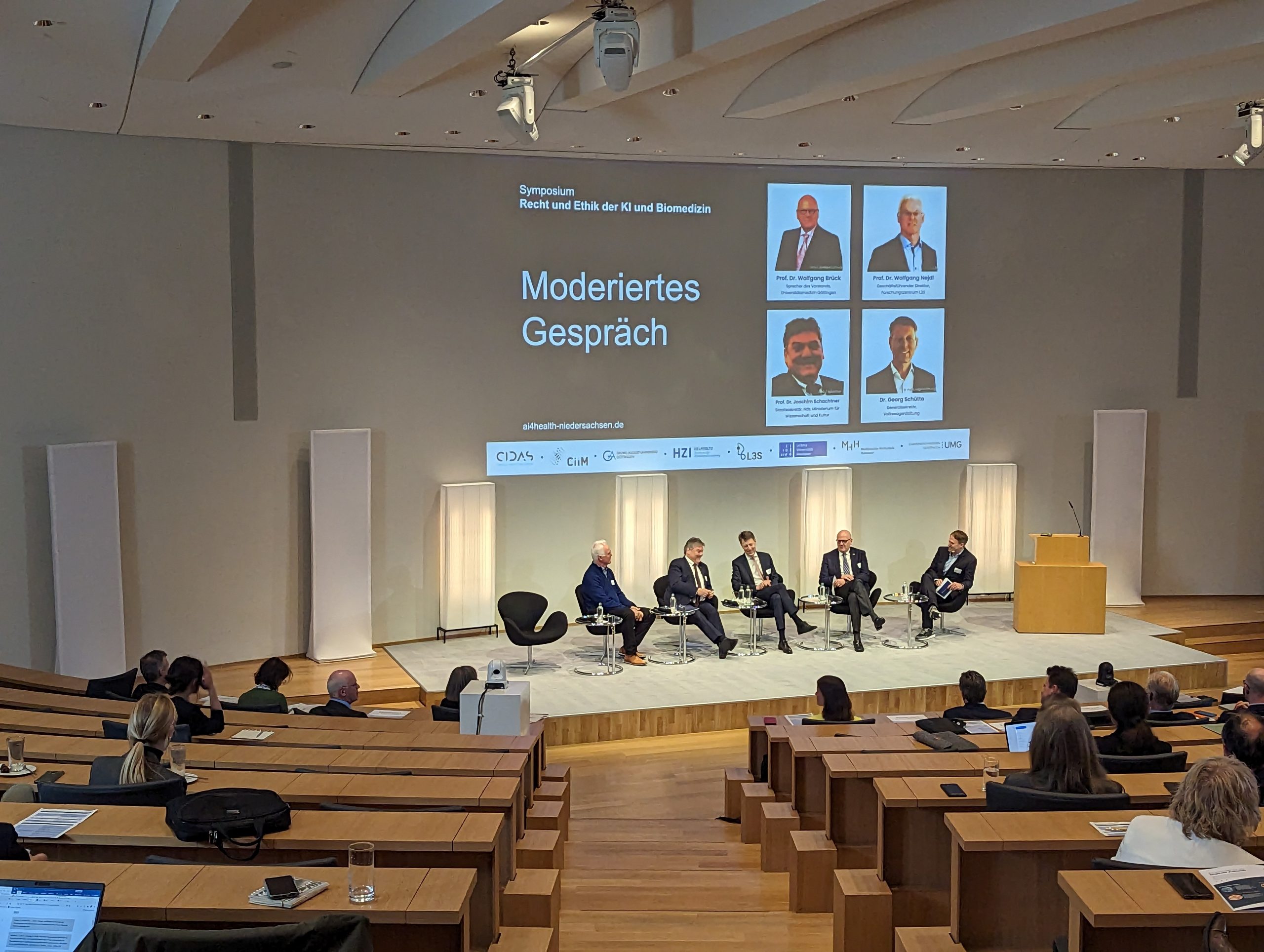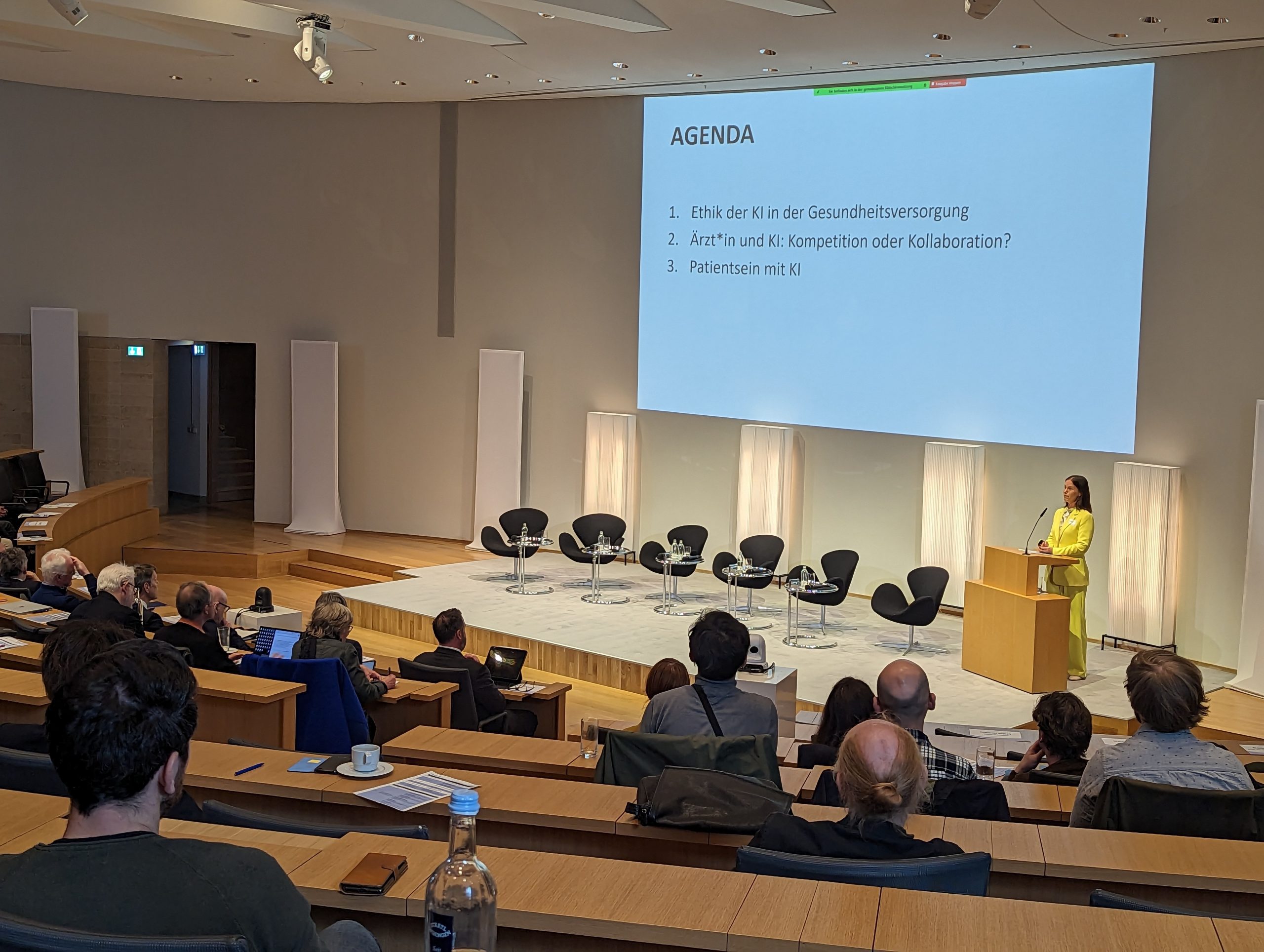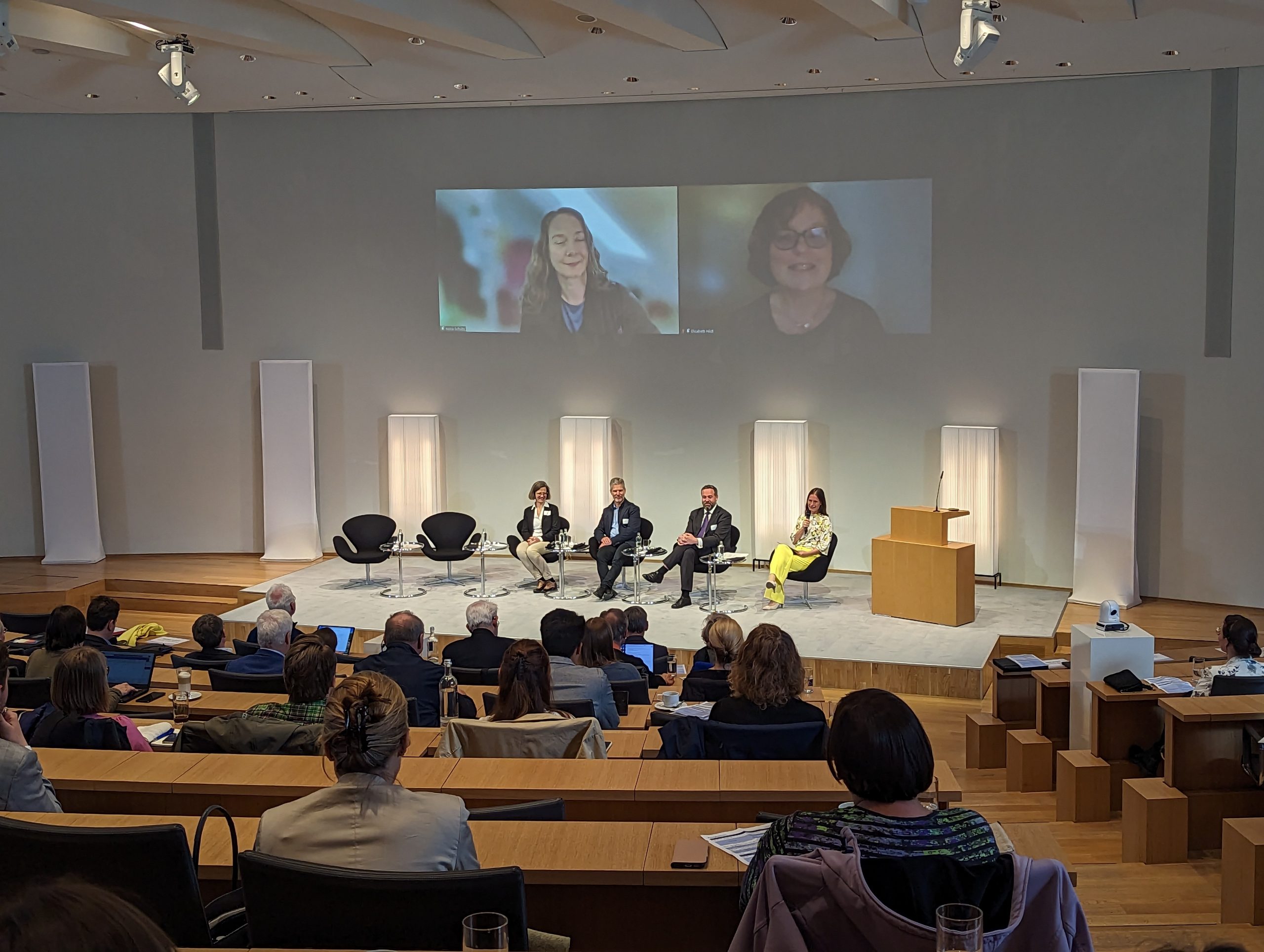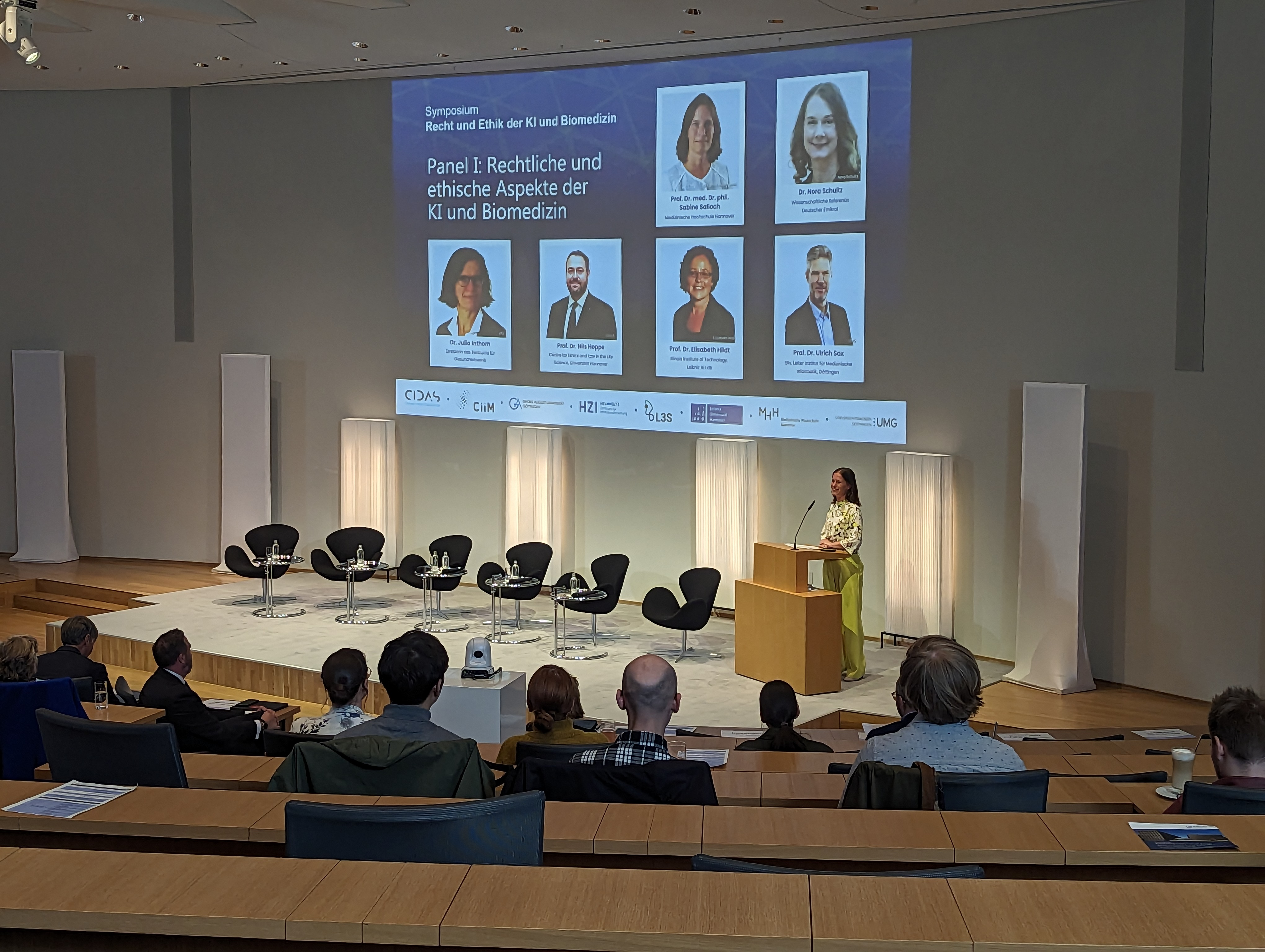Leading experts from the fields of medicine, computer science, the humanities, the healthcare industry and politics exchanged views at the ProCAIMed Symposium "Law and Ethics of AI and Biomedicine" at Herrenhausen Palace on May 16, 2023. The focus of the debate: How can healthcare technologies improve the quality of care without compromising people's autonomy? Is there a right to medical treatment with AI? And what framework conditions do we need for the use of AI in medicine?
In panels and keynotes, experts from various scientific disciplines and medical application areas presented challenges as well as solutions and options for shaping society on this topic.
"Artificial intelligence has enormous potential for the transformation of the healthcare system in terms of demographic change alone, but freedom for innovation must go hand in hand with legal regulations. From the perspective of innovation and research funding, we should create structures and promote minds that courageously engage in an ambitious dialog between disciplines. Cutting-edge research will be research that makes humanities expertise heard and creates precisely adjusted transdisciplinarity," said Dr. Georg Schütte, Secretary General of the Volkswagen Foundation, in the opening discussion. With the "zukunft.niedersachsen" program, the state of Lower Saxony is investing massively in the expansion of the science location in the areas of transformation, digitization and cutting-edge research, according to Prof. Joachim Schachtner, State Secretary in the Lower Saxony Ministry of Science and Culture. The stronger interlinking of medicine and computer science is important for the healthcare of tomorrow. Prof. Wolfgang Brück, Spokesman of the Executive Board of the University Medical Center Göttingen, pointed out that university hospitals play a central role in the development and validation of AI systems in medicine. Prof. Dr. Wolfgang Nejdl, Managing Director of the L3S research center, one of the co-hosts of the symposium alongside Wolfgang Brück, explained that privacy-enhancing technologies are a promising approach to enable data protection and at the same time provide AI researchers and start-ups with access to data.
In her keynote speech, Prof. Sabine Salloch, Head of the Institute for Ethics, History and Philosophy of Medicine at Hannover Medical School, emphasized that a competitive image of the human-technology relationship in medical AI could be harmful. Technology must support and assist people, and this requires trustworthy, supportive AI systems. This is all the more important as it will not be possible to provide "non-AI alternatives" in the long term in many areas of healthcare.
170 guests from the fields of medicine, law, ethics, IT, the healthcare industry, politics and the interested public took part in the event both on site and digitally. We would like to thank all speakers and participants for a successful symposium!
On this page you can read more about the agenda and speakers of the symposium.
